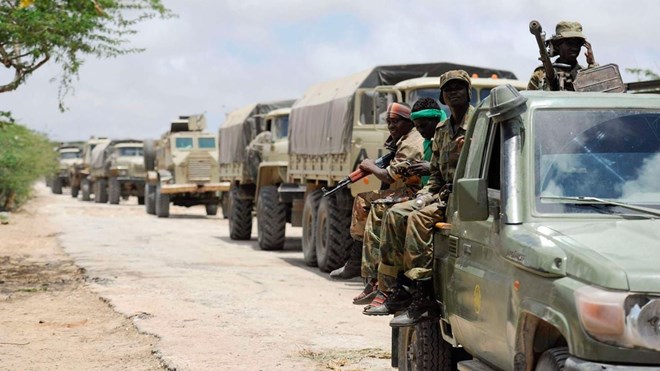
Saturday February 4, 2023

The Somali National Army is making ready to take over the reins of national security from foreign forces under Atmis.
A decade and half since African troops first landed in Mogadishu to break Al-Shabab’s stranglehold over Somalia, the Somali National Army is making ready to take over the reins of national security from foreign forces under the African Union Transition Mission in Somalia. Somalia’s security has evolved over the years, with al-Shabab proving to be a resilient and deadly adversary.
With 10 months to the end of foreign intervention in Somalia, federal government forces and local allies have also shown a readiness to pick up the mantle. Only last month, government forces backed by local militia wrested control of Haradhere port, an Al-Shabab stronghold on the Indian Ocean coast.
But the road untravelled is still the longer part. Somalia still has to consolidate peace and it is too early for allies and the international community to consider their job done. Somalia has significantly degraded the capacity of the militants to wage a conventional campaign. But the country will still need residual military support to consolidate peace.
Fragment further
A likely scenario is that, sensing annihilation, Al-Shabab will fragment further and bide its time to fight another day. There’s also a real danger that the militants will infiltrate operatives across borders into neighbouring countries in attempts to shift the frontlines of the war on terror.
The army will need high grade intelligence and advanced surveillance to keep tabs on Shabab and to snuff out any comeback attempts by the militants. It will also need effective mobility to respond to and counter any emerging threats while frontline countries will need to heighten antennae.
For it to be sustainable, Somalia’s security should not be looked at in isolation of its neighbours’ capacity to keep their own territories secure, and their ability to respond to distress calls from Mogadishu.
Encouraging reports
So far, the reports coming out of a summit of heads of government of frontline states in Mogadishu this week are encouraging. The summit called for the lifting of a 30-year arms embargo on Somalia. The leaders of Djibouti, Ethiopia, Kenya and host Somalia agreed on the need for continuity and a final offensive against al-Shabab ahead of Atmis’s withdrawal.
Long before the advent of official channels, Eastern Africa was always integrated at the communal level. These ancient pathways that have facilitated movement of people for millennia remain open, in defiance of modern arrangements by states. The implication of this is that an insecure Somalia is a threat to everyone else in its neighbourhood.
If Mogadishu needs more support, it is for the common benefit of all in the greater Horn of Africa. For all-round security, Somalia needs to break the vicious cycle of insecurity and embark on restoring human and economic development.
But before it can convert the chariots into ploughs, it is going to need a sound strategy for the day after tomorrow.